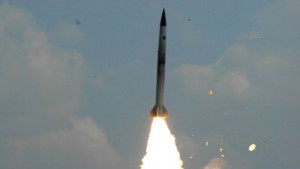Senior Moscow diplomat reportedly says first shipment of anti-aircraft missile system will start in the coming days
Russia is to begin delivering the S-300 anti-aircraft missile defense system to Iran in the coming days, a senior Russian diplomat was reported as saying Tuesday, the latest chapter in an on-again, off-again saga involving transfer of the advanced weapon.
“I don’t know if this will happen today, but they [S-300 missiles] will be loaded [for shipment to Iran],” said Zamir Kabulov, a department chief at the Russian Foreign Ministry, according to the Interfax news agency.
The announcement comes a month after reports that Russian President Vladmir Putin froze the transfer after receiving evidence from Israel that Tehran had transferred advanced weapons to Hezbollah.
Putin was said to have scuppered the delivery after Israel showed that Iran had repeatedly attempted to transfer the SA-22 Greyhound short-range air defense system to the Lebanese-based terrorist group.
One of the most sophisticated anti-aircraft weapons in the world, the S-300 is capable of tracking multiple planes at once, and some versions have an interception range of up to 200 kilometers.
Israel has long sought to block the sale to Iran of the S-300 system, which analysts say could impede a potential Israeli strike on Tehran’s nuclear facilities. Other officials have expressed concern that the systems could reach Syria and Hezbollah, diluting Israel’s regional air supremacy.
In 2010 Russia froze a deal to supply advanced long-range S-300 missile systems to Iran, linking the decision to UN sanctions.
Putin lifted the suspension in 2015 following Iran’s deal with six world powers that curbed its nuclear program in exchange for relief from international sanctions.
Officials said last month that Russia and Iran finalized the contract for their delivery, which would reportedly be carried out sometime in early 2016.
There have been several previous reports in the Russian and Iranian press of “imminent” delivery of the system.
Russia initially agreed to sell the system to Iran in 2007 but then balked, saying at the time it was complying with a United Nations arms embargo on the Islamic Republic.
timesofisrael.com



